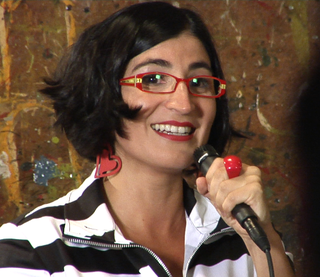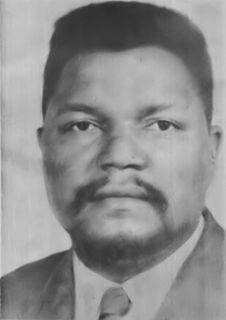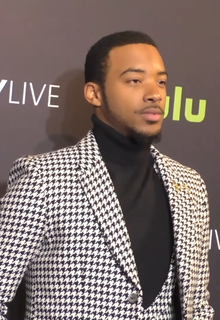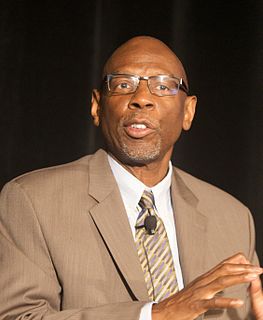A Quote by DeRay Mckesson
Everybody has told the story of black people in struggle except black people. The black people in the struggle haven't had the means to tell the story historically. There were a million slaves, but you see very few slave narratives. And that is intentional.
Quote Topics
Related Quotes
The true story is that black people need to tell their history. Very few films are made by black people about slavery. That itself is a crime because slavery is a very important historical event that has held our people hostage. Forget white people's role in it. In the end what's important is black people remain and live with the scars and psychological issues.
I wanted to make sure the focus [in The Land] was on human beings themselves and their decisions, but still connected to the urban environment that people associate as being black. I think I was able to make a film without commenting on "black this or black that" and you still feel the presence of it. There's no one character who's saying "we're all black and we're all in this struggle." It's that you just feel it. Some of that is because we get the sense from a lot of independent films that black people struggle all the time.
Black people's music is in a class by itself and always has been. There's nothing like it. The reason for that is because it was not tampered with by white people. It was not on the media. It was not anywhere except where black people were. And it is one of the art forms in which black people decided what is good in it. Nobody told them. What surfaced and what floated to the top, were the giants and the best.
What is being black? It's making the most of your life, not taking a single moment for granted. Taking something that's seen as a struggle and making it work for you, or you'll die inside. Not to say that my struggle is like the collective struggle of black America. But maybe my struggle is similar to one black dude's.
The Organization of Afro-American Unity was an organization that was a secular group. It largely consisted of people that we would later call several years later Black Powerites, Black nationalists, progressives coming out of the Black freedom struggle, the northern students' movement, people - students, young people, professionals, workers, who were dedicated to Black activism and militancy, but outside of the context of Islam.
I knew that the black struggle wasn't my struggle. But I felt like it was my-struggle-adjacent, you know? I've always said that if you turn the dial in one direction, a Muslim is a Jew is an East Asian person is a Native American and so on. I feel very much that all of these struggles are kind of the same and - Hillary Clinton actually said this recently - when you get rid of one barrier, it opens up the gates for a whole bunch of people you didn't even know would benefit from it. So not fighting for the black struggle is like not fighting for the Muslim struggle.
There is a problem in America. An Irish or Polish American can write a story and it's an American story. When a Black American writes a story, it's called a Black story. I take exception to that. Every artist has articulated to his own experience. The problem is that some people do not see Blacks as Americans.
The violence that we had in the 60's was limited. The next time it will be unlimited because the violence in the 60's was a struggle for human dignity and for human rights. The next struggle will be a struggle for survival and it will not just be limited to Black people or Black against white, but it will be the poor people, the masses of the people of the country, struggling for the right to live or the right to survive.
I would say I'm black because my parents said I'm black. I'm black because my mother's black. I'm black because I grew up in a family of all black people. I knew I was black because I grew up in an all-white neighborhood. And my parents, as part of their protective mechanisms that they were going to give to us, made it very clear what we were.





































